- Dr. Ibrahim (Abe) Elfadel
- Dr. Marwan K. Khraisheh
- Dr. Taha B.M.J. Ouarda
- Dr. Toufic Mezher
- Dr. Simo Pehkonen
- Dr. Michael Perrott
- Dr. Irfan Saadat
- Dr. Mohamed Sassi
- Dr. Tariq Shamim
- Dr. Youssef Shatilla
- Dr. Afshin Afshar
- Dr. Robert M. Baldwin
- Dr. Hassan Fath
- Dr. Steven Griffiths
- Dr. Hassan Arafat
- Dr. Peter Armstrong
- Dr. Matteo Chiesa
- Dr. Mahieddine Emziane
- Dr. Hosni Ghedira
- Dr. Isam Janajreh
- Dr. Scott Kennedy
- Dr. Hasan Muir Nayfeh
- Dr. Hatem Zeineldin
- Dr. Mohammad Abu Zahra
- Dr. Zeyar Aung
- Dr. Farrukh Ahmad
- Dr. Amal Al Ghaferi
- Dr. Jacob Crandall
- Dr. Sid Chi-Kin Chau
- Dr. Ali Diabat
- Dr. Clara Dimas
- Dr. Amro Farid
- Dr. Adel Gougam
- Dr. Raed Hashaikeh
- Dr. Andreas Henschel
- Dr. Hector Hernandez
- Dr. Vinod Khadkikar
- Dr. Inas Khayal
- Dr. Anatoly Khilo
- Dr. Annalisa Molini
- Dr. Ammar Nayfeh
- Dr. Iyad Rahwan
- Dr. Jorge Rodriguez
- Dr. Firas Sammoura
- Dr. Sgouris Sgouridis
- Dr. Ayman Shabra
- Dr. Marco Stefancich
- Dr. Davor Svetinovic
- Dr. Mette H. Thomsen
- Dr. I-Tsung Tsai
- Dr. Jaime Viegas
- Dr. Wei Lee Woon
- Dr. Weidong Xiao
- Dr. Jerald Yoo
- Dr. Lina F. Yousef
- Dr. TJ Zhang
Faculty
Faculty members listed here were associated with Masdar Institute when the Masdar Institute & MIT Cooperative Program began. For an up-to-date list, visit:http://web.mit.edu/mit-mi-cp/masdar/faculty.html
Professors
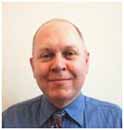
Professor, Microsystems Engineering
Ph.D.,Systems Science and Engineering, Massachusetts Institute of Technology, 1993
M.S., Mechanical Engineering, Massachusetts Institute of Technology, 1986
Teaching Interests: Computer-Aided Design for Integrated Circuits and Systems;Digital Systems; Digital Signal and Image Processing; Engineering and Computational Electromagnetics
Dr. Elfadel has 15 years of industrial experience in the research, development and deployment of advanced computer-aided design (CAD) tools and methodologies for deep-submicron, high-performance digital designs. Most recently, he played a key role in the development and deployment of IBM’s next-generation layout verification tools for the ultra-deep submicron CMOS technology nodes. Dr. Elfadel is the recipient of six Invention Achievement Awards, an Outstanding Technical Achievement Award and a Research Division Award, all from IBM, for his contributions in the area of VLSI CAD. He is currently serving as an Associate Editor for the IEEE Transactions on Computer-Aided Design for Integrated Circuits and Systems.
Dr. Elfadel's current research interests include: Computer-aided design tools and methodologies for nano-scale integrated circuits and systems with emphasis on variation-aware, low-power designs; Technology CAD and compact modeling of emerging device and interconnect technologies with particular emphasis on multi-physics, layout-aware characterization, and CMOS-based photonics and MEMS integration and; Fast, high-accuracy algorithms for 3D multi-domain parameter extraction and simulation.
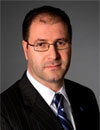 Dr. Marwan K. Khraisheh
Dr. Marwan K. Khraisheh
Professor, Materials Science and Mechanical Engineering
Ph.D., Mechanical Engineering, Washington State University, 1996
M.S., Mechanical Engineering, Washington State University, 1992
Teaching Interests: Fabrication and Manufacturing Technologies; Materials Processing; Deformation Processes
Prior to joining the Masdar Institute faculty, Dr. Khraisheh was the Secat - J. Morris Professor and the Director of Undergraduate Studies in the Mechanical Engineering Department at the University of Kentucky. His research interests include materials processing and sustainable manufacturing. He currently focuses on developing innovative concepts and techniques for processing and fabrication of advanced materials including lightweight alloys.
Dr. Khraisheh is a recipient of a number of significant awards including the prestigious US National Science Foundation CAREER Award, the 2004 Society of Manufacturing Engineers (SME) Eugene Merchant Outstanding Young Manufacturing Engineer Award, the 2003 North American Manufacturing Research Institute (NAMRI) Outstanding Paper Award and the 2005 Henry Mason Lutes Award for Excellence in Engineering Education. He serves on the Editorial Board of Journal of Materials Processing Technology (Elsevier) and is a member of a number of international technical committees from ASME, ASM and TMS. Dr. Khraisheh has edited a proceeding book for ASME and has more than 110 publications including refereed journal papers, refereed conference papers and presentations.
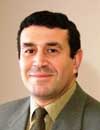
Professor, Water and Environmental Engineering
Ph.D., Water Resources Systems Analysis Program, Colorado State University, 1991
Prior to joining Masdar Institute, Mr. Ouarda was Chairman of the Canada Research Chair on the Estimation of Hydro-meteorological Variables, and also Chairman of the Industrial Chair in Statistical Hydrology, where his research team represented one of the largest Canadian teams in the field of hydrology. Mr. Ouarda has also served as President of the National Canadian Committee on Statistical Hydrology.
Dr Ouarda’s specialization is in hydrometeorology, environmental and public health modeling, and risk analysis.
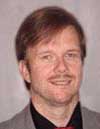
Professor, Chemical Engineering
Ph.D., Env. Eng. Science, California Institute of Technology, 1994
Just prior to his appointment at Masdar Institute, Dr. Pehkonen was a Research Director of Cewic at the Thule Institute at University of Oulu, Finland. Cewic is a Center of Expertise in the Water Industry cluster. Prior to joining Cewic, he was an Associate Professor of Environmental Chemistry in the Division of Environmental Science and Engineering at National University of Singapore (NUS).
Dr. Pehkonen’s research interests are environmental photochemistry, materials chemistry including corrosion chemistry and applied kinetics in environmental aquatic systems.
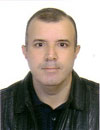 Dr. Toufic Mezher
Dr. Toufic Mezher
Professor, Engineering Systems and Management
Sc.D., Artificial Intelligence and Human Factors, George Washington University, 1992
M.S., Engineering Administration, George Washington University, 1987
Teaching Interests: System Dynamics for Business Policy; Technology Strategy
Prior to joining the Masdar Institute faculty, Dr. Mezher was a Professor of Engineering Management at the American University of Beirut from 1992 to 2007. His government experience includes work for the National Center for Education Statistics (U.S. Department of Education) and the Institute for Artificial Intelligence. His research interests include sustainable development, energy management and policy, and knowledge management.
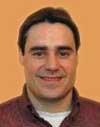
Professor, Microsystems Engineering
Electrical Engineering and Computer Science, MIT 1997
M.S., Electrical Engineering and Computer Science, MIT 1992
Before joining Masdar Institute, Dr. Perrott was Chief Circuit Architect at SiTime Corporation, a Silicon Valley startup developing clock generation and timing solutions which incorporate Micro-Electro Mechanical Systems (MEMS) resonator devices inside standard silicon electronic chips. Prior to that, he was an Assistant and then Associate Professor in Electrical Engineering and Computer Science at the Massachusetts Institute of Technology.
From 1997 to 1998, he worked at Hewlett-Packard Laboratories in Palo Alto, CA, on high speed circuit techniques for Sigma-Della synthesizers. In 1999, he was a visiting Assistant Professor at the Hong Kong University of Science and Technology, and taught a course on the theory and implementation of frequency synthesizers. From 1999 to 2001 he worked at Silicon Laboratories in Austin, TX, and developed circuit and signal processing techniques to achieve high performance clock and data recovery circuits.
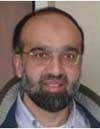
Professor, Microsystems Engineering
MEng., Electrical Engineering, Cornell University 1984
Ph.D., Electrical Engineering, Cornell University, 1990
Prior to joining the Masdar Institute, Dr. Saadat had been with PDF Solutions, a leading semiconductor consulting company based in San Jose, CA, where he managed engagements with a leading U.S.-based microelectronics company starting from the 90nm node. For the last two years, Dr. Saadat was managing the 22/20nm CMOS project at a leading global semiconductor alliance. He also worked with various alliance members in Europe and Asia in technology transfer and ramping. Prior to PDF Solutions, Dr. Saadat worked at Fairchild Research Center in Santa Clara, CA, an anchor for innovation in Silicon Valley, CA, where his research interest involved silicides, BEOL, spin on dielectrics and eDRAM integration.
Research interests of Dr. Saadat involve silicidation and local interconnect integration and advanced BEOL system for very high aspect ratio nodes. At Masdar Dr. Saadat has initiated, along with faculty from Material Science and Engineering, novel semiconductor material and device research program centered on Masdar’s newly commissioned clean room. This clean room is the only clean room in an educational institution in the UAE.
Dr. Saadat has authored and co-authored more than nine publications in leading semiconductor conferences and journals; and has been granted seven U.S. patents.
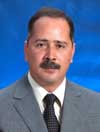
Professor, Mechanical Engineering
Ph.D., Mechanical Engineering, University of California, Berkeley, 1990
M.S., Mechanical Engineering, University of California, Berkeley, 1987
Teaching Interests: Dr. Sassi’s fascination with the microscopic and the macroscopic phenomena involved in chemical and mechanical engineering processes, and especially as applied to thermo-chemical reactors, combustion and plasma devices, and air pollution control has allowed him to teach undergraduate and graduate courses in three departments (Chemical, Mechanical, and Petroleum Engineering) in statics, strength of materials, materials science and engineering, fluid mechanics, heat and mass transfer, optical and laser diagnostics, combustion, plasma physics and applications, air pollution control, chemical engineering unit-operations, turbo-machinery design, analysis and simulation, and especially chemical engineering process-design, simulation, and economical analysis.
Dr. Sassi has a long record of academic and industrial experience in chemical/mechanical engineering, teaching, research and service. After his studies and a post-doc in the USA, he moved to The Electric Company of France in Paris, where he worked for six years in their research division on gas turbine combustion and air pollution control among other projects related to numerical modeling and optical and laser diagnostics of plasma torches, electrical circuit breakers, and electrical-arc-driven furnaces. These interests have continued through his teaching and research activities in Tunisia for eight years, and lately as a Professor of chemical engineering at the Petroleum Institute of Abu Dhabi.
Dr. Sassi’s current research interests include:CO2 reduction, capture, and storage for carbon management; thermal fluid sciences, combustion, and plasma in theory and practice; optical and laser diagnostics for combustion and electrical plasma devices; flame versus flameless gas turbine combustion for energy savings and air pollution control;microwave Induced plasma for hydrogen production and sulfur recovery from sour gas; and chemical engineering process-design, simulation, and economical analysis.
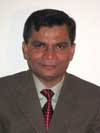
Professor, Mechanical Engineering
Ph.D., Mechanical Engineering, The University of Michigan, Ann Arbor, 1997
M.Sc., Aerospace Engineering, The University of Michigan, Ann Arbor, 1996
Teaching Interests:Sustainable Energy Systems; Fuel Cell Systems; Combustion and Emissions Control
Prior to joining the Masdar Institute, Dr. Shamim was a tenured faculty member in the Department of Mechanical Engineering at the University of Michigan-Dearborn, where he worked since 1997. During his sabbatical and summer leaves from the University, Dr. Shamim also held visiting faculty appointments at the National University of Singapore, American University of Sharjah, NED University of Engineering & Technology, Oak Ridge National Laboratory and Ford Motor Company.
Dr. Shamim specializes in the broad area of thermal sciences. His main expertise is in the fields of energy systems, fuel cells, combustion, and emission control. His research and consulting work has been supported by more than two million dollars of external grants from the National Science Foundation (NSF), U.S. Department of Defense, U.S. Department of Energy, and the automotive companies. He has been actively involved in many professional organizations including ASME, SAE and Combustion Institute. He is currently serving on the editorial board of three journals.
Dr. Shamim’s current research interests include: modeling of combustion and reacting flow; advanced energy systems - fuel cells; emissions control; CO2 capture; hydrogen production; sustainable mobility
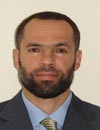 Dr. Youssef Shatilla
Dr. Youssef Shatilla
Professor, Nuclear Engineering, Mechanical Engineering
D.Sc., Nuclear Engineering, Massachusetts Institute of Technology, 1992
M.Sc., Nuclear Engineering, Alexandria University, 1988
Teaching Interests: Nuclear Physics; Nuclear Reactor Physics; and Sustainable Energy
Prior to joining the Masdar Institute faculty, Dr. Shatilla's academic appointments included: Visiting Professor in the Department of Nuclear Science and Engineering at MIT, Associate Professor in the Department of Nuclear Engineering at King Abdulaziz University, Saudi Arabia, and Assistant Professor, Department of Nuclear Engineering, Alexandria University. Dr. Shatilla's industry experience includes working as a Principal Engineer in the Core Engineering Department of Westinghouse Electric Company where he developed methods and software for nuclear reactor design applications.
Dr. Shatilla's research interests are computational reactor physics, in-core nuclear fuel management optimization, advanced reactor design, application of nuclear systems for water desalination and hydrogen production.
Professors of practice
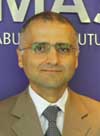
Professor of Practice, Engineering Systems and Management
Ph.D., Physics, University of Paris XI, France, 1990
MBA, INSEAD, France, 1996
As a Professor of Practice as Masdar Institute, Dr. Afshari manages a number of collaborative R&D projects involving strategic partners. Immediately prior to this position, for a period spanning close to three and a half years, he was head of Masdar City’s Energy Department where he specified and enforced—at design and operational stages—key performance indicators for energy efficiency, demand-side management and smart grid. He also conducted pilot and feasibility projects, citywide energy modeling, financial and economic analysis, and risk assessments.
Dr Afshari has more than fifteen years of experience in the field of energy management, including ten years in management positions.
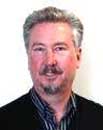
Professor of Practice, Chemical Engineering
Ph.D.,Chemical and Petroleum Refining Engineering, Colorado School of Mines, 1975
M.S., Chemical Engineering, Iowa State University, 1972
Dr. Robert M. Baldwin spent thirty years as a faculty member at the Colorado School of Mines (CSM) including ten years as Head of the Chemical Engineering department. In 2005, Dr. Baldwin was named Emeritus Professor of Chemical Engineering by the CSM.
Dr. Baldwin is a member of the project team that founded the Petroleum Institute (PI) in Abu Dhabi, and served as Program Director in Chemical Engineering at the PI from 2002 – August, 2007.
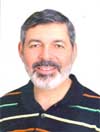 Dr. Hassan Fath
Dr. Hassan Fath
Professor of Practice, Water and Environmental Engineering
Ph.D., Mechanical Engineering, McMaster University, Hamilton, Ontario, Canada, 1981
M. Eng., Mechanical Engineering, McMaster University, Hamilton, Ontario, Canada, 1977
Teaching Interests: Desalination and Thermal Engineering Sciences
Prior to joining the Masdar Institute, Dr. Fath was Professor of Mechanical Engineering, Alexandria University, Alexandria, Egypt, and visiting professor to different regional universities. Dr. Fath’s industrial experience included Atomic Energy of Canada Limited (AECL-Canada), Saline water Conversion Corporation (SWCC-KSA). He also led the New Thermal Desalination Processes’ team; Doosan Heavy Industries R&D center (UAE).
Dr. Fath’s current research interests include Desalination & Energy Technologies with the following objectives:
- Improve the performance of existing desalination technologies and their CAPEX, OPEX and water cost.
- Develop new generation desalination technologies to suite integration with renewable energies.
- Apply the developed processes/systems for pilot testing and large commercial plants.
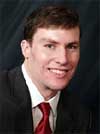 Dr. Steven Griffiths
Dr. Steven Griffiths
Professor of Practice, Chemical Engineering
Ph.D., Chemical Engineering, Massachusetts Institute of Technology, 2002
MBA, MIT Sloan School of Management, 2004
Dr. Steven Griffiths is the Executive Director of Institute Initiatives and Professor of Practice, Chemical Engineering at the Masdar Institute of Science and Technology. Dr. Griffiths has responsibility for developing strategic relationships with industry, government, and academia and oversees the Institute’s Office of Sponsored Programs, Technology Transfer Office, and Research Centers of Excellence. His overarching role is to establish and nurture external research collaborations with an emphasis on accelerating the development of a knowledge-based economy in Abu Dhabi and bringing sustainable technologies to market.
Prior to his role at Masdar Institute, Dr. Griffiths was the Executive Director of the MIT Technology and Development Program’s MIT/Abu Dhabi Program and the founding Executive Vice President of Light Pharma Inc. In these roles he worked in the United States, India and, the Middle East leading the development and implementation of technical and strategic relationships. His interests and expertise are process design, technology strategy and financial analysis in the areas of information technology, biotechnology, and advanced energy technologies.
Notable current positions include membership on the steering committee of the Clean Energy Business Council, appointment to the Selection Committee of the Zayed Future Energy Prize, and upcoming UAE representation for the IRENA International Technical Expert Team for Potentials/Scenarios work.
Associate Professors
 Dr. Hassan Arafat
Dr. Hassan Arafat
Associate Professor, Water and Environmental Engineering
Ph.D., Chemical Engineering, University of Cincinnati, 2000
Teaching Interests: Membrane Desalination; Solid Waste Management; Pollution Prevention; Separation Processes
Prior to joining Masdar Institute, Dr. Arafat worked (2000-2003) at Argonne National Laboratory (Illinois, USA) as a researcher and project manager for the United States Department of Energy. Between 2003 and 2010, Dr. Arafat was a faculty member at the Chemical Engineering Department at An-Najah University (Nablus, Palestine) and served as the director of the Water Technologies Research Unit there. He is also an adjunct associate professor in the Department of Biological Engineering at Utah State University (Utah, USA) since 2009. The focus areas of Dr. Arafat's most recent research projects are in the development of fouling-resistant RO and MD membranes for seawater desalination, the separation of algae from wastewater lagoons for biodiesel generation, and the development of sustainable solid waste management strategies. He is the recipient of many research grants and several international research fellowships. He has more than 50 peer-reviewed publications. He is also the winner of several prestigious awards.
Dr. Arafat’s current research interests include: membrane desalination;solid-waste management; separation processes (adsorption, solvent extraction, membranes); water and wastewater processes
 Dr. Peter Armstrong
Dr. Peter Armstrong
Associate Professor, Mechanical Engineering
Ph.D., Building Technology, Massachusetts Institute of Technology, 2004
M.S., Mechanical Engineering, Colorado State University, 1980
Teaching Interests: Applications of Technology in Energy and the Environment; General Thermodynamics; Advanced Heat and Mass Transfer.
Prior to joining the Masdar Institute faculty, Dr. Armstrong was a senior research engineer at Pacific Northwest National Laboratory where he worked on miniature devices, such as a man-portable heatpump and a hypothermic implant, efficiency retrofits for domestic and Russian buildings, alternative cooling, and other new end-use and combined heat and power technologies. Dr. Armstrong's current research interests include:
- Fault modeling and detection in motors, pumps, compressors, and refrigeration equipment;
- Advanced efficient cooling and heat pump technologies, controls and systems
- Controls for motor, power and thermofluid systems; model-based control, sensor systems; and
- Infiltration, ventilation, contaminant transport and dispersion modeling
Active in numerous professional associations, Dr. Armstrong has received the following awards: Fostering Diversity Awards (1996, 1998); Key Contributor Award (anisotropic micro-channel recuperator and fabrication method 2002); Top Thirty Inventor of Energy Technology Division (invention disclosures 2000-2004); Outstanding Performance Award (advanced HVAC technology field monitoring/analysis 2005).
 Dr. Matteo Chiesa
Dr. Matteo Chiesa
Associate Professor, Materials Science, Mechanical Engineering
Ph.D., Mechanical Engineering, Norwegian University of Science and Technology, 2001
M.Sc., Mechanical Engineering, Norwegian University of Science and Technology, 1997
Teaching Interests: Nano-to-Macro Transport Processes; Atomistic Computer Modeling of Materials
Prior to joining the Masdar Institute faculty, Dr. Chiesa was a Post Doctoral Research Fellow at MIT where he investigated the properties of nano-engineered insulating material that may play a key role in addressing the technological challenges faced by the oil industry in enhancing oil recovery while minimizing its environmental impact. This research was performed in close collaboration with the R&D department at Aibel (former ABB Offshore System) for which he previously served as a technical advisor. He was also employed at SINTEF Petroleum and Energy, one of the largest European research institutions.
Dr. Chiesa's research focuses on the development of solar thermoelectric energy conversion technologies. This research employs picosecond ultrasonics based on optical generation and detection of acoustic phonons to characterize transport and structural properties of novel materials and nanostructures. Such properties are needed to design energy conversion technologies. Dr. Chiesa currently works on a hybrid system that combines photovoltaic (PV) with thermoelectric (TE) modules.
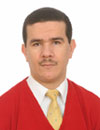 Dr. Mahieddine Emziane
Dr. Mahieddine Emziane
Associate Professor, Materials Science
Ph.D., Materials Physics, University of Nantes, France, 1998.
Diplôme des Etudes Approfondies (DEA), Materials Physics, University of Nantes, France, 1995.
M.S., Physics, University of Reims, France, 1992.
Teaching Interests: Photovoltaics and Related Technologies; Electrical, Optical, Magnetic and Mechanical Properties of Materials; Thermodynamics and Kinetics of Materials.
Prior to joining the Masdar Institue faculty, Dr. Emziane spent the past 13 years working in the area of semiconductor materials and devices, with an emphasis on thin-film photovoltaics (PV) where he has extensive experience in experimental, design and modeling. Most recently Dr. Emziane was a researcher at Oxford University where he worked on III-V cells for PV and TPV applications. Prior to Oxford , Dr. Emziane was at Durham University investigating the impurities in CdTe PV devices. He also worked at the Universities of Sheffield and Liverpool, and as a Guest Scientist at Infineon Technologies in Germany.
Dr. Emziane has authored over 30 refereed publications, and made more than 25 contributions to international conferences. He is a reviewer for many international journals, and has been a member of the international scientific committee of SCELL 2004 Conference. He is member of IoP, MRS, IEEE and EDS.
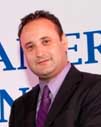 Dr. Hosni Ghedira
Dr. Hosni Ghedira
Associate Professor, Water and Environmental Engineering
Ph.D., Water Sciences, INRS-Eau, University of Quebec, 2002
M.Sc., Civil Engineering, University of Sherbrooke QC, Canada
Teaching Interests: Water and Wastewater Engineering; Mathematical and Statistical Modeling; Environmental Remote Sensing and Satellite Image Processing.
Prior to joining Masdar Institute, Dr. Ghedira was with the American University in Dubai as Associate Professor of Civil Engineering. He also served as Senior Scientist at the Emirates Institution for Advanced Science & Technology (EIAST), Space Program and Visiting Researcher at NOAA-CREST Center in New York. Before moving to the UAE, Dr Ghedira spent six years at the City University of New York as assistant professor and research associate professor. He also acted as director of the Environmental Remote Sensing and Image Processing Laboratory at the NOAA Cooperative Remote Sensing Science & Technology Center (NOAA-CREST) in New York for more than four years.
Recently, Dr. Ghedira has been actively involved in several research projects with EIAST focusing on developing new satellite-based tools to forecast detect and monitor different environmental hazards in the UAE and the Gulf region. Currently, Dr Ghedira is supervising a team of four researchers and graduate students working on four different research projects at EIAST: water quality monitoring, dust and sand storms monitoring, fog forecasting and monitoring, and air quality monitoring.
Dr. Ghedira’s current research interests include: Application of Remote Sensing in Environmental Monitoring; Water Resources Management in Water-Scarce Regions; Satellite Image Processing; and Remote Sensing Algorithm Development.
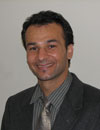 Dr. Isam Janajreh
Dr. Isam Janajreh
Associate Professor, Mechanical Engineering
Ph.D., Engineering Science and Mechanics, Virginia Polytechnic, 1998
M.S., Engineering Science and Mechanics, Virginia Polytechnic, 1994
M.S., Mechanical Engineering, Virginia Polytechnic, 1992
Teaching Interests: Advanced Heat and Mass Transfer; Fundamentals and Applications of Combustion; Fundamental of Advanced Energy Conversion
Prior to joining the Masdar Institute faculty, Dr. Janajreh gained extensive teaching experience at Virginia Polytechnic, Johns Hopkins University, University of Maryland , University of Maryland Baltimore County, and Florida Atlantic University. His industry experience includes work at Michelin R&D in the U.S. analyzing tire traction, vehicle dynamics, rubber material modeling and work at Michelin France heading the Tire Hydroplaning Modeling project. Most recently he worked for Parametric Solutions Inc.(PSI) as Fluid/Solid Interaction Analyst. He has also worked on several U.S. government-sponsored projects in the R&D aerospace area.
Dr. Janajreh's research interests include: waste to energy, waste incineration, and tire combustion/gasification and pyrolysis, and combustion of biofuels and biomass gasification.
 Dr. Scott Kennedy
Dr. Scott Kennedy
Associate Professor, Engineering Systems and Management
Ph.D., Engineering Science, Harvard University, 2003
S.M., Applied Math, Harvard University, 2003
Teaching Interests: Global Climate Change; Economics, Science and Policy; Industrial Ecology
Dr. Kennedy's current research interests focus on integrating renewable energy sources into power networks, with an emphasis on the interactions between power markets and power system operations. He has worked on various research and consultancy projects in urban air quality management, energy resource planning, urban transportation planning, and other issues related to sustainable energy and development. He received the John and Fannie Hertz Fellow award in 1998.
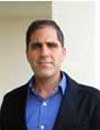
Associate Professor, Microsystems Engineering
Ph.D., Electrical and Computer Engineering, MIT, 2003
M.S., University of Illinois at Urbana-Champaign, 1999
Prior to joining Masdar Institute, Dr. Nayfeh was a member of the IBM Semiconductor Research & Development Center in Hopewell Junction, NY. There, he worked on SOI device design that resulted in the successful deployment of 65nm and 45nm technology nodes.
From 2010-2011 his focus was on technology definition for the 22nm node in his role as lead device design senior engineer. He has thirty technical publications, four issued patents, and is a Senior Member of the IEEE.
Assistant Professors
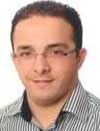
Assistant Professor, Chemical Engineering
Ph.D., Delf University of Technology, Netherlands, 2009
M.S. and PDEng, Chemical Engineering University of Twente, Netherlands, 2005
Dr. Abu Zahra worked for the International Energy Agency Greenhouse Gas R&D Programme (IEAGHG) as a project manager in the capture and integrated system team prior to joining Masdar Institute. He was responsible of initiating and managing various projects and technical studies with a major focus on CO2 post-combustion capture.
Prior to that, he was senior research engineer with the Separation technology department in the Dutch research institute (TNO) in the Netherlands. His R&D activities were in the area of process development and gas treatment technologies, primarily in the development of the CO2 capture technologies using post- and pre-combustion capture.
Dr. Abu Zahra serves in the editorial board of the international journal of greenhouse gas control and he was the coordinator of the 1st post-combustion capture conference. His current research focuses on the development of CO2 capture technologies including the development of advanced solvents, solid sorbents and novel processes; he is leading the Siemens-Masdar Institute CCS collaboration and the Masdar-Masdar Institute-RTI project
 Dr. Farrukh Ahmad
Assistant Professor, Water and Environmental Engineering
Dr. Farrukh Ahmad
Assistant Professor, Water and Environmental Engineering
Ph.D., Environmental Science and Engineering, Rice University, 2001
M.S. Environmental Engineering, University of Houston, 1994
Registered Professional Chemical and Environmental Engineer
Teaching Interests: Contaminant Fate and Transport; Water and Wastewater Treatment;
Groundwater Hydrology; Environmental Risk Assessment; Remediation Engineering.
Prior to joining the Masdar Institute, Dr. Ahmad was Adjunct Professor at the University of Houston and Sr. Environmental Engineer with the environmental risk management firm, GSI Environmental. Dr. Ahmad’s areas of expertise include the design and testing of innovative water treatment technologies and the development of novel environmental site characterization methods. In both of these areas, he has led multi-disciplinary and multi-institution teams in the U.S. under Federal research grants to address environmental contamination problems. His past experience has also included serving as a technical expert in the field of Environmental Forensics. Work in this area has involved age-dating and source-identification of petroleum, solvent, and brine releases in the environment using chemical biomarkers, stable isotope methods, and salinity markers.
Dr. Ahmad’s current research interests include the use of renewable materials for water treatment and energy generation, development and testing of water treatment technologies, contaminant fate and transport in environmental media and environmental risk assessment.
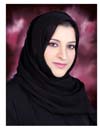 Dr. Amal Al Ghaferi
Dr. Amal Al Ghaferi
Assistant Professor, Materials Science and Engineering
Ph.D., Materials Science and Engineering, University of Pittsburgh, January 2007
Teaching Interests: Materials for Energy Applications; Electrochemical Processing of Materials on the Nanoscale; Fundamentals of Advanced Energy Conversion; Introduction to Materials Science and Engineering
Teaching Interests: Nanotechnology, Organic Memory Devices, Organic/inorganic Photovoltaic Devices
Prior joining Masdar Institute of Science and Technology, Dr. Al Ghaferi was an assistant Professor at the Physics Department at UAE University in Al Ain, where she got her academic experience in teaching fundamental and advance courses in Physics.
Dr. Al Ghaferi's research interest is in nanotechnology and how to implement nanotechnology in the renewable energy field.
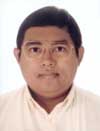
Assistant Professor, Computing and Information Science
Ph.D., National University of Singapore, 2006
Teaching Interests: Data Mining, Machine Learning, Database Management, Information Retrieval, Algorithms
Dr. Aung has experience working in mining of scientific data and indexing and retrieval of large scientific databases. Dr. Aung’s areas of expertise include data mining, machine learning, database management, bioinformatics, and chemoinformatics. His past experience has also included serving as a research fellow in Institute for Infocomm Research, A*Star (Agency for Science, Technology and Research), Singapore from 2006 to 2010. He is a professional member of International Society for Computational Biology (ISCB).
Dr. Aung’s current research interests include data mining and database management systems for renewable energy and sustainability.
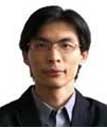
Assistant Professor, Computing and Information Science
Ph.D., Computer Laboratory, University of Cambridge, 2007
Dr. Chau researches in broad areas of networking, algorithms and stochastic analysis, with a particular emphasis on a wide range of sustainability issues.
Before joining Masdar Institute, Dr, Chau was a scientist and senior research fellow at the Institute for Infocomm Research (I2R) of A*STAR in Singapore, a Croucher Foundation research fellow at the Department of Electronic and Electrical Engineering, University College London (awarded a research fellowship by the Croucher Foundation Hong Kong), and a research associate at the Computer Laboratory, University of Cambridge.
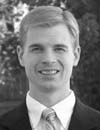 Dr. Jacob Crandall
Dr. Jacob Crandall
Assistant Professor, Computing and Information Science
Ph.D., Computer Science, Brigham Young University, 2006
M.S., Computer Science, Brigham Young University, 2004
Teaching Interests: Robotics; Human-machine Interaction; Artificial Intelligence; Multi-agent Systems
Prior to joining the Masdar Institute faculty, Dr. Crandall was a Postdoctoral Associate at the Massachusetts Institute of Technology, where he performed research on modeling human, multi-robot teams. His dissertation at Brigham Young University was in the area of multi-agent learning. His current research interests include robotics, human-machine systems, interactive artificial learning, and multi-agent systems.
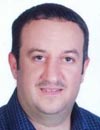 Dr. Ali Diabat
Dr. Ali Diabat
Assistant Professor, Engineering Systems and Management
Ph.D., Industrial Engineering, Purdue University, 2008.
M.S., Operations Research, North Carolina University, 2003.
M.S., Mechanical Engineering, Jordan University of Science & Technology, 2001.
Teaching Interests: Systems Optimization; Supply Chain Networks Design; Logistics; Production Planning and Inventory Management; and Operations Research.
Prior to joining the Masdar Institute faculty, Dr. Diabat worked as a graduate instructor at Purdue University for four years where he received a number of academic recognitions, including an outstanding graduate student (GPA: 4.00/4.00); an outstanding graduate instructor award; and an excellence in teaching award. Dr. Diabat’s industry experience includes working as business analyst in the transportation industry and as operations research analyst in the banking and beverages industries.
Dr. Diabat's current research focuses on Sustainable Transportation and Logistics Systems Optimization; Capacity Expansion and Resources Allocation; Production Planning and Scheduling;and Renewable Energy Optimization Models.
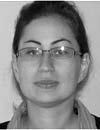 Dr. Clara Dimas
Dr. Clara Dimas
Assistant Professor, Materials Science
Ph.D., Electrical Engineering, Lehigh University, 2009.
M.S., Electrical Engineering, Lehigh University, 2006.
Teaching Interests: Quantum Confined Structures; Photonic Materials and Devices; Micro and Nanofabrication Processing.
Dr. Dimas’s areas of expertise are light emitting devices based on nanostructures, microelectromechanical systems and semiconductor processing. Prior to joining the Masdar Institute faculty, she conducted research at the Center for Optical Technologies on the design and fabrication of broadband quantum dot/dash light sources for interferometric sensing systems. In addition, she also previously worked at a startup on the product research and development of micromirrors for adaptive optics imaging and free-space communications.
Dr. Dimas has contributed to 30 publications including refereed journals, conference proceedings, invited talks and a US patent. Other honors include : Journal of Applied Physics Reviewer (2008), Newport Spectra-Physics Award (2009) , SPIE Educational Scholarship (2006).
Dr. Dimas’s current research interest is in developing nanostructured material and hybrid device platforms to provide energy efficient high performing solid state lighting solutions. She is part of the Nanophotonics and Opto-Electronics Research Laboratory (NOOR Lab) devoted to research in optics, photonics, optoelectronics, and electronic-photonic integration. The NOOR Lab is a part of the Microsystems Engineering program.
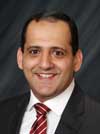 Dr. Amro Farid
Dr. Amro Farid
Assistant Professor, Engineering Systems and Management
Ph.D., Industrial Control Systems Engineering, University of Cambridge, 2006
M.S., Electrical Engineering, Massachusetts Institute of Technology, 2002
Teaching Interests: Product Design & Development; Systems Architecting; Systems Behavior Modelling & Analysis; Project Management; Operations & Management
Prior to joining the Masdar Institue faculty, Dr. Farid worked as an environment and greenhouse gases specialist at Air Liquide Group where he fulfilled a number of roles for the European Union Emission Trading Scheme and the identification of best available techniques for design and operation hydrogen production facilities.
Dr. Farid's research interests center around the systems engineering of large scale complex systems as it may be applied to conception, design, operation, and reconfiguration of energy systems. This specifically entails: integration of industrial automation and control systems into energy systems; design, operation, and upgrade of intelligent power grids; systems engineering & requirements analysis for sustainable & dynamic energy systems; integration of energy storage systems; demand response of large scale facilities.

Assistant Professor and Program Head, Materials Science and Engineering
Ph.D., Experimental Condensed Matter Physics, University of Montpellier, France, 1997
M.Sc. , Physics – Electronic and Ionic of Solids, University of Montpellier, France, 1993
Teaching interests: Electronic, magnetic and optical properties of materials ; High efficiency solar cells: advanced fabrication methods; and Physics of solar cells.
Dr. Gougam’s areas of expertise are experimental solid state physics including studies of novel electronic, magnetic materials and conductive oxides. Photovoltaic device fabrication (mainly Si wafer based), including a number of layer deposition techniques (PECVD, PVD), clean room processes for nanofabrication, semiconductor device physics and electrical characterization of nanostructures at cryogenic temperatures (semiconducting and metallic nanowires).
Prior to joining Masdar Institute in August 2011, he was heading the task force on heterojunction based Si solar cells at imec vzw (Leuven-Belgium) focusing on Si back contacted cells. Dr Gougam is co-inventor of two pending IP rights in the field of PECVD deposition. He also spearheaded the work of an R&D team of a solar cell company in Canada working on proprietary PECVD system to develop a-Si/c-Si heterojunction solar cells.
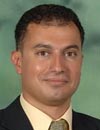 Dr. Raed Hashaikeh
Dr. Raed Hashaikeh
Assistant Professor, Materials Science and Engineering
Ph.D., Materials Engineering, McGill University, 2005
M.Eng, Materials Engineering, McGill University, 2001
Teaching Interests: Structure and Properties of Polymers; Materials for Energy Conversion and Environmental Protection.
Prior to joining the Masdar Institute faculty, Dr. Hashaikeh worked as a scientist (NSERC Industrial research and development fellow) at FPInnovations (Paprican division), Canada.
Dr. Hashaikeh's current research interests include bioethanol production from lignocellulosic materials, supercritical water gasification of biomass to hydrogen and nanocrystalline cellulose extraction and utilization in polymeric composite materials.
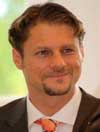
Assistant Professor, Computer and Information Science
Ph.D., Bioinformatics, TU Dresden, Germany, 2008
M.Sc., Computational Logic, TU Dresden, Germany, 2004
Prior to joining Masdar Institute as an Assistant Professor, Dr. Henschel was a Postdoctoral Researcher in Technology Forecasting at Masdar Institute from 2009-2011. Prior to that, he was a Postdoctoral Researcher in Protein Bioinformatics at TU Dresden, Germany where he earned his doctorate.

Assistant Professor, Chemical Engineering
Ph.D., Biological Chemistry, MIT, 2008
Prior to joining Masdar Institute, Dr. Hernandez worked as a postdoctoral associate in the Department of Civil and Environmental Engineering at MIT. In this role, he led a team of graduate and undergraduate students in the characterization of microbial communities isolated from a Carbon Sequestration injection site.
Dr. Hernandez laboratory focuses on understanding the role that microbes play in mitigating today’s environmental needs. His research concentrates in three general areas. (1) Understanding the chemical potential in microbial niches by investigating community membership and active metabolic pathways under varying environmental conditions, (2) novel metabolic pathways involved in production of energy rich biological molecules, and (3) bioengineering of secondary metabolite pathways for production of high value secondary metabolites.
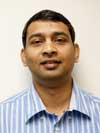 Dr. Vinod Khadkikar
Dr. Vinod Khadkikar
Assistant Professor, Electrical Power Engineering
Ph.D., Engineering, École de technologie supérieure, Montréal, Canada, 2008
M.Tech., Power Electronics, Electrical Machines and Drives, Indian Institute of Technology (IIT), Delhi, India, 2002
Teaching Interests:Power Electronics; Electric Power Quality; and Electric Machines
Prior to joining the Masdar Institute, Dr. Khadkikar worked as a postdoctoral fellow at Department of Electrical and Computer Engineering, the University of Western Ontario, London (ON), Canada. He worked on several industrial collaborated research projects. He received a number of scholarships including MHRD (Government of India), Ministry of Education of Quebec (Canada), scholarship awarded by École de technologie supérieure, IEEE Industrial Electronics travel grant.
Dr. Khadkikar’s current research interests include application of power electronics in renewable energy systems, grid interconnection issues, electric power quality, active power filters and static reactive power compensation.
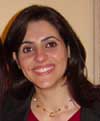 Dr. Inas Khayal
Dr. Inas Khayal
Assistant Professor, Engineering Systems and Management
Ph.D., Bioengineering, University of California, Berkeley and San Francisco, 2009 and University of California, Berkeley, Haas School of Business, Management of Technology Program, 2007
Teaching Interests: Health and Sustainability, Entrepreneurship
Dr. Khayal’s experience has been in translational research utilizing non-invasive acquisition to computationally visualize, model and analyze biological data as it affects human health. Her past experience was in utilizing diffusion imaging as a non-invasive marker in the management of brain tumor treatment. She has consulted for multiple startups and holds two U.S. and international patents.
Dr. Khayal’s current research interests include sustainable healthy living; using ubiquitous technology for non-invasive early warning markers and health monitoring of chronic disease.
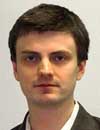
Assistant Professor, Microsystems Engineering
Ph.D., Electrical Engineering, MIT, 2011
M.Sc., Electrical Engineering, MIT, 2008
Dr. Khilo is working on the design and modeling of novel integrated photonic devices, such as modulators, filters, and photodetectors, and implementation of electronic-photonic integrated circuits, such as data transmission links and analog-to-digital converters, using silicon photonics technology.
During his studies at MIT, Dr. Khilo was working on integrated photonic analog-to-digital converters. From 1999 to 2005, Dr. Khilo was a modeling engineer at VPIsystems, a world’s leading provider of simulation tools for the fiber optics industry.
At Masdar Institute, Dr. Khilo is part of the Nanophotonics and Opto-Electronics Research Laboratory (NOOR Lab) devoted to research in optics, photonics, optoelectronics, and electronic-photonic integration. The NOOR Lab is a part of the Microsystems Engineering program.
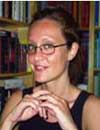
Assistant Professor, Water and Environmental Engineering
Ph.D., Methods for Environmental Monitoring, University of Basilicata/University of Genova, Italy, 2002
M.S., Environmental Sciences, Physics of Atmosphere & Oceanography, University of Genova, Italy, 1998
Prior to joining Masdar Institute in 2011, Dr. Molini was a Research Associate at Duke University, Department of Civil and Environmental Engineering with a joint appointment with the Nicholas School of the Environment.
She previously undertook her doctoral work in the Department of Construction, Environmental and Territorial Engineering at University of Genova, Italy and in 2007 was appointed as Data Manager and Analyst in the World Meteorological Organization (WMO) Field Inter-comparison of Rainfall Intensity Gauges, at the Italian Air-force Meteorological Center of Vigna di Valle, Rome, Italy.
Her research mainly focuses the connections between climate change and water resources availability, hydro-meteorology, and the stochastic modeling of hydrological and environmental processes, as well as hydro-statistics and the study of extreme events such as severe droughts. At Masdar Institute, Dr. Molini is part of the Climate, Water & the Environment Lab.
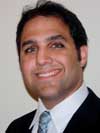 Dr. Ammar Nayfeh
Dr. Ammar Nayfeh
Assistant Professor, Microsystems Engineering
Ph.D., Electrical Engineering, Stanford University, 2006
M.S., Electrical Engineering, Stanford University, 2003
Teaching Interests: Integrated Microelectronic Devices, Physics of Microfabrication: Front End Processing, Micro/Nano Processing Technology
Prior to joining the Masdar Institute, Dr. Nayfeh was with Advanced Micro Devices (AMD) as a researcher working on Ultra Thin Body (UTB) SOI Devices for 22nm and beyond in joint project with IBM. Most recently, Dr. Nayfeh was employed at Innovative Silicon (ISi), a Silicon Valley startup that licenses Z-RAM Technology, a DRAM replacement. In addition, he was a part time professor at San Jose State University.
Dr. Nayfeh’s current research interests include thin film solar cells, low power nano-electronics, high-performance nano-electronics, nano-photonics and nano-memory technologies. He is currently working at the Microsystems Technology Laboratories (MTL) at MIT on thin film tandem multi-junction crystalline solar cells with SiGe/Ge and Si for improved efficiency.
 Dr. Iyad Rahwan
Dr. Iyad Rahwan
Assistant Professor, Computing and Information Science
Ph.D., Information Systems, University of Melbourne, 2005
M.S., Information Technology, Swinburne University, Melbourne, Australia, 2000
Teaching Interests: Intelligence, Multi-agent Systems, Algorithms, Logic for Computer Science
Prior to joining the Masdar Institute, Dr. Rahwan was a founding faculty member at the British University in Dubai. His research deals with various aspects of collective intelligence in technical and socio-technical systems. He is a founding Editor of the journal of Argument and Computation, Associate Editor of the Knowledge Engineering Review and the Journal of Autonomous Agents and Multiagent Systems (JAAMAS), and has been an invited editor of special issues of JAAMAS and IEEE Intelligent Systems. In 2007, he won the "Best Technical Paper Award" at the International Conference on Electronic Commerce (ICEC).
Dr. Rahwan’s current research interests include multi-agent resources optimization (e.g. of energy usage), the use of social computing to improve people’s behavior, and creating models of collective decision-making and argumentation.
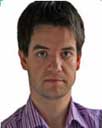
Visiting Assistant Professor, Water and Environmental Engineering/Chemical Engineering
Ph.D., Chemical and Env. Engineering, University of Santiago de Compostela, Spain, 2006
M.Sc., Faculty of Chemistry, Universidade de Santiago de Compostela, Spain, 2001
PG Certificate, Learning & Teaching (Higher Education), University of Glamorgan (UK)
Teaching interests Wastewater Treatment Engineering and Bioprocess Engineering, Bioprocess Modelling and Control.
Dr. Rodríguez joined Masdar Institute late 2010. Prior to this appointment, he has worked in several prestigious universities including the Delft University of Technology (NL), the University of Queensland (AU) and in the University of Glamorgan (UK) as researcher and lecturer.
Dr. Rodríguez is co-author of over twenty peer reviewed journal articles, book chapters and over forty conference contributions, including invited talks, in areas related to modelling and control of biological wastewater treatment processes. He has acted as reviewer for numerous scientific journals and in conference scientific committees. Dr. Rodríguez has been evaluator for the UK BBSRC and ESRC as well as Spanish ANEP. He is the Newsletter Editor of the IWA anaerobic digestion specialist group and Associate Editor of the journal Water Science and Technology.
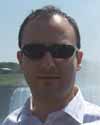 Dr. Firas Sammoura
Dr. Firas Sammoura
Assistant Professor, Microsystems Engineering
Ph.D., Mechanical Engineering, University of California, Berkeley, 2006
M.S., Mechanical Engineering, University of California, Berkeley, 2002
Teaching Interests: Design and Fabrication of MEMS; Materials and Processes for Microelectromechanical Devices and Systems
Prior to joining Masdar Institute, Dr. Sammoura was a senior device characterization engineer in the Advanced Development Group at the MEMS/Sensors division of Analog Devices in Wilmington, MA. He also worked as a student researcher with Hitachi Global Storage Technologies at the IBM Almaden Research Center from March 2004 until May 2006 where he did proprietary research in MEMS applications for the hard drive disk industry. Dr. Sammoura won the Spot Award for solving the stiction problem that plagued consumer inertial MEMS accelerometers. He has several pending patent applications in the field of microwave engineering and MEMS fabrication and design.
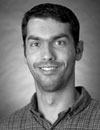 Dr. Sgouris Sgouridis
Dr. Sgouris Sgouridis
Assistant Professor, Engineering Systems and Management
Ph.D., Engineering Systems, Massachusetts Institute of Technology, 2007
M.S., Technology and Policy, Massachusetts Institute of Technology, 2005
M.S., Transportation, Massachusetts Institute of Technology, 2005
Teaching Interests: Sustainable Energy; Management for Engineers
Dr. Sgouridis has experience working at governmental and private organizations including the U.S. Department of Transportation, the Port Authority of Thessaloniki, and the Hellenic Army -- Army Corps of Engineers. His research interests include commercial aviation, sustainability, optimization, dynamics of large scale systems, and environmental impacts of transport. Dr. Sgouridis is the recipient of the Martin Fellowship for Sustainability (2004-2005) and the Award for Excellence in Academic Performance from the Chambers of Engineers (1998 and 1999).
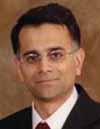
Assistant Professor, Microsystems Engineering
Ph.D., Electrical Engineering, Massachusetts Institute of Technology, 2001
M.S., Electrical Engineering, Massachusetts Institute of Technology, 1997
Teaching Interests: Analog and Mixed-signal Integrated Circuit Design, Integrated Microelectronic Devices, and Signal Processing.
Dr. Shabra joined Masdar Institute after almost a decade of industrial experience at Analog Devices and MediaTek, where he was engaged in the design of numerous products for the wireless handset market from concept to mass production. His analog and mixed signal circuit design experience includes circuit for communications, battery and power management, sensor interfaces, and MMI technology such as touch screens.
Dr. Shabra’s current research interests include:
- Analog and mixed-signal circuits and their application within a variety of systems such as future wireless communication and power management including energy harvesting.
- Research problems that fall within the Cooper-Hewitt 90 percent design themes.
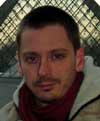 Dr. Marco Stefancich
Dr. Marco Stefancich
Assistant Professor, Material Science and Engineering
Ph.D., Physics, University of North Texas, 1998
Teaching Interests: Quantum Theory, Statistical Mechanics and Electromagnetic Theory, Optics and Optical Engineering, Physics and Technology of Solar Systems, Concentrator Photovoltaic. Other teaching interests are in the field of Numerical Simulation and Computer Based Modeling
Prior to joining the Masdar Institute, Dr. Stefancich was a researcher at the Italian National Research Institute (CNR). He has been working for many years on photovoltaic conversion of concentrated sunlight with an emphasis on the system related aspect and prototypes realization.
He co-founded a spin-off company for the production of a new concept of photovoltaic system in Italy.
He is currently working on a high efficiency approach based on the color separation in the concentrated beam and the simultaneous use of different color-specific high efficiency cells. At the same time he is considering the possible synergy between concentration photovoltaic and desalinization processes or space cooling as well as the possibility for (concentrated) light driven chemical reactions for energy storage.
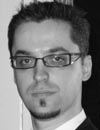 Dr. Davor Svetinovic
Dr. Davor Svetinovic
Assistant Professor, Computing and Information Science
Ph.D., Computer Science, University of Waterloo, Canada, 2006.
MMath, Computer Science, University of Waterloo, Canada, 2002.
Teaching Interests: Requirements Engineering; Software Architecture; Software Engineering
Prior to joining the Masdar Institute, Dr. Sveinovic worked at Lero – the Irish Software Engineering Center, Ireland, and Vienna University of Technology, Austria. He received his doctorate degree in computer science and his master of mathematics degree from University of Waterloo, Canada. His main research interests are requirements engineering, systems architecture, and software development processes. He received a number of academic recognitions, including top Canadian research scholarships and teaching excellence awards.
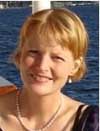
Assistant Professor, Chemical Engineering
Ph.D., Biochemistry/Industrial Micobiology, University of South Denmark, 2004
M.Sc., Chemical Engineering, Aalborg University, Denmark, 2000
Dr. Mette Hedegaard Thomsen joined the Masdar Institute in June 2010.
Following her Ph.D., she was employed with the Technical University of Denmark, Risø National Laboratory for Sustainable Energy as Post Doc., Research Scientist, and Senior Scientist. She has worked with utilization of waste products for bio-fuels and green chemicals for more than ten years.
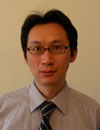 Dr. I-Tsung Tsai
Dr. I-Tsung Tsai
Assistant Professor, Engineering Systems and Management
Ph.D., Risk Management, Massachusetts Institute of Technology, 2007
M.S., Construction Management, Massachusetts Institute of Technology, 2002
M.S. in Transportation Engineering, National Cheng-Kung University, Taiwan, 1999
Teaching Interests: System Project Management; Systems Optimization
Prior to joining the Masdar Institute faculty, Dr. Tsai served as a water strategy consultant for the Singapore government and was a visiting scholar to the Institute of Financial Research and Management, India in 2006. His research interests include carbon management, carbon finance, infrastructure policy, and information economics. His current research estimates the effect of emission allowances on human health. Previously, he studied the implicit incentive mechanism embedded in financial contracts, and the effect of asymmetric information in the online auction markets.
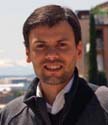 Dr. Jaime Viegas
Dr. Jaime Viegas
Assistant Professor, Microsystems Engineering
Ph.D., Physics, University of Porto, Portugal, 2010
M.Sc., Optoelectronics and Lasers, University of Porto, Portugal, 2003
Teaching Interests: Computational Electrodynamics and Photonic Materials and Devices
Before joining the Masdar Institute, Dr. Viegas taught diverse physics courses at the University of Trás-os-Montes e Alto Douro, Vila Real, Portugal. He was also a visiting researcher at the new micro-optics fabrication laboratories of the University of North Carolina at Charlotte, USA. His Ph.D. centered on researching integrated optical sensors for chemical monitoring.
Dr. Viegas' current research interests include: Integrated photonics, Integrated and fiber optical sensors, Microfabrication and nanofabrication, Simulation of photonic devices, Fourier optics and optical processing. At Masdar Institute, he is part of the Nanophotonics and Opto-Electronics Research Laboratory (NOOR Lab) devoted to research in optics, photonics, optoelectronics, and electronic-photonic integration. The NOOR Lab is a part of the Microsystems Engineering program.
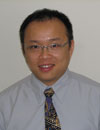 Dr. Wei Lee Woon
Dr. Wei Lee Woon
Assistant Professor, Computing and Information Science
Ph.D., Neural Computing, Aston University, U.K. , 2002
Teaching Interests: Integrating Information Systems: Technical, Strategic, and Organizational Factors; Foundations of Software Engineering.
Prior to joining the Masdar Institute faculty, Dr. Woon was on the faculty of the Malaysia University of Science and Technology as an assistant professor, where he served until 2007. Dr. Woon's research interests are focused on the analysis of large data sets. Recent examples include technology forecasting, text mining and biomedical signal analysis. Dr. Woon has authored over 20 academic papers.
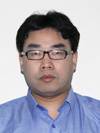 Dr. Weidong Michael Xiao
Dr. Weidong Michael Xiao
Assistant Professor, Electrical Power Engineering
Ph.D., Electrical Engineering, University of British Columbia, Vancouver, BC, 2007
M.A.Sc, Electrical Engineering, University of British Columbia, Vancouver, BC, 2003
Teaching Interests: Power Electronics; Computer Aided Design of Power Electronics; and Dynamic Control Systems.
Prior to joining the Masdar Institute faculty, Dr. Xiao worked with MSR Innovations Incorporation as a R&D engineering manager focusing on projects related to integration, research, optimization and design of photovoltaic systems.
Dr. Xiao's current research interests include power electronics, advanced control, and photovoltaic power systems.
 Dr. Jerald Yoo
Dr. Jerald Yoo
Assistant Professor, Microsystems Engineering
Ph.D., Electrical Engineering, Korea Advanced Institute of Science and Technology (KAIST), 2010
M.S., Electrical Engineering, Korea Advanced Institute of Science and Technology (KAIST), 2007
Teaching Interests: Microelectronic Circuits and Systems Design; VLSI Design; Application-driven System-on-Chip Implementation
As a chief researcher at the Semiconductor System Laboratory in KAIST, Dr. Yoo developed low-energy Body Area Network (BAN) transceivers and wirelessly powered wearable sensors. His extensive research on Planar-Fabric Circuit Board (P-FCB) and the related circuits has opened the door for wearable, continuous health monitoring system. He also developed an embedded processor for Phase-Change Random Access Memory (PRAM). Dr. Yoo’s areas of expertise include advanced low energy circuit technology for wearable bio signal sensors, SoC design to system realization for wearable healthcare applications and energy-efficient circuit techniques and its chip implementation.
Dr. Yoo’s current research interests include low energy wearable body area network applications and its transceiver, wireless power transmission, low-power biomedical microsystem.
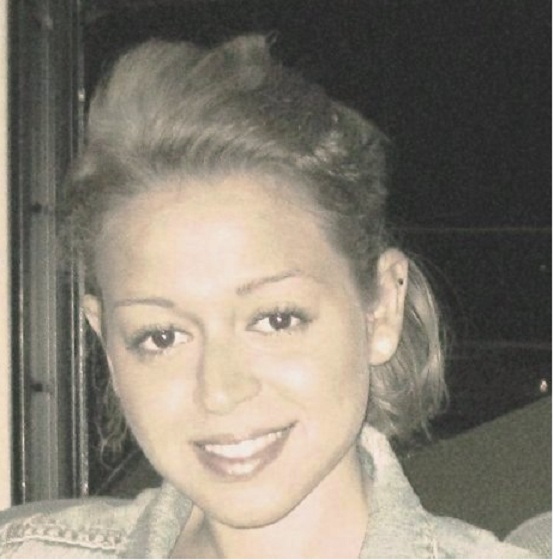 Dr. Lina F. Yousef
Dr. Lina F. Yousef
Assistant Professor, Water and Environmental Engineering
Ph.D., Soil Microbiology, Ohio State University, 2010
M.Sc., Univeristy of Western Ontario, 2005
Teaching Interests: Applied Environmental Chemistry and Biotechnology.
Dr. Yousef joined Masdar Institute in September 2010 as a research scientist to assist in developing integrated seawater agricultural systems for the generation of aviation biofuels from halophytic feedstock. Her Ph.D. work focused on using a molecular and biochemical approach to address microbial acquisition of sterols from the environment via extracellular sterol-carrier proteins. She has authored publications in books,peer reviewed journals and conferences. She also holds a pending patent in the USA for a rapid biochemical assay that measures pathogen prevalence in soil samples.
Dr. Yousef's current research looks at prochlorococcus from the Arabian Sea to determine salinity tolerance mechanisms and carbon fixation efficiency and developing bioenergy systems.
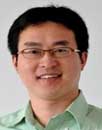
Assistant Professor, Mechanical Engineering
Ph.D.,Mechanical Engineering , Systems and Control, City University of Hong Kong, 2008
M.Sc., Thermal Power Engineering, Southeast University, China,2004
Prior to joining Masdar Institute, Dr. Zhang was a postdoctoral research associate at the Rensselaer Polytechnic Institute (RPI), where he served as the principal researcher of the US Office of Naval Research MURI project “System‐Level Approach for Multi‐Phase Nanotechnology‐Enhanced Cooling of High‐Power Microelectronic Systems”.
His current research is focused on multiphase flow and heat transfer for concentrating solar power generation, thermal energy storage and microelectronics cooling.
